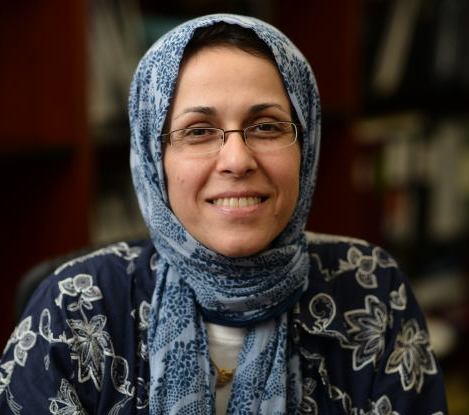March 2021 - According to Soosan Ghazizadeh, PhD, millions of Americans are currently suffering from the loss of salivary gland function, greatly affecting oral health and overall quality of life. Beyond xerostomia, more commonly known as dry mouth, decreased saliva can be harmful to the teeth and gums, potentially leading to permanent tooth loss. Saliva also plays a vital role in how we eat – from chewing and swallowing to digestion. Without it, eating can be far less enjoyable.
 Dr. Ghazizadeh, a Professor in the Department of Oral Biology and Pathology at Stony Brook University School of Dental Medicine, is on track to help. She was recently awarded $431,899 in funding from the National Institute of Dental and Craniofacial Research of the National Institutes of Health for her research into the restoration of salivary gland function.
Dr. Ghazizadeh, a Professor in the Department of Oral Biology and Pathology at Stony Brook University School of Dental Medicine, is on track to help. She was recently awarded $431,899 in funding from the National Institute of Dental and Craniofacial Research of the National Institutes of Health for her research into the restoration of salivary gland function.
Her initial research is promising. The stimulation of mature cells neighboring the saliva-producing cells or acini indicates that other cell types can be repurposed to help to produce saliva. This is meaningful as Dr. Ghazizadeh moves forward. Without having to bring new cells to the area, there is an opportunity to harness cell plasticity to enhance regeneration of saliva-producing cells for the effective restoration of salivary function innately.
The regeneration of salivary gland secretion would greatly benefit patients suffering from dry mouth symptoms including those undergoing various cancer therapies, taking one of the hundreds of dry mouth-causing medications, suffering from nerve damage, or diagnosed with health conditions, including diabetes, stroke, autoimmune diseases, and Sjogren’s syndrome, among others.
“Almost a quarter of the world’s population suffers from dry mouth symptoms. Translation of Dr. Ghazizadeh’s research findings will positively impact a large portion of the population,” explained Dr. David K. Lam, Interim Associate Dean for Research for the School of Dental Medicine. “In my roles as a cancer surgeon and oral and maxillofacial surgeon, I see firsthand the negative repercussions that dry mouth can have on the lives of some of our most vulnerable patients.”
At present, the treatments for dry mouth are limited, especially for patients with permanent damage to the salivary glands. While over-the-counter solutions like mouthwashes or saliva substitutes may help, even these solutions provide only temporary relief.
“The causes of limited saliva production and associated dry mouth are vast,” explained Dr. Ghazizadeh. “Furthermore, the long-term impacts can be debilitating – from changing eating patterns to tooth loss. The restoration of gland function may offer an effective treatment option for patients with salivary dysfunction.”
Dr. Ghazizadeh will be supported by her team within the School of Dental Medicine’s Department of Oral Biology and Pathology. The goal of Dr. Ghazizadeh’s overall research within her lab is to gain insight into the cellular and molecular mechanisms regulating tissue repair and regeneration in epithelial tissues.
Research reported in this publication was supported by the National Institute Of Dental & Craniofacial Research of the National Institutes of Health under Award Number R21DE030653. The content is solely the responsibility of the authors and does not necessarily represent the official views of the National Institutes of Health.
